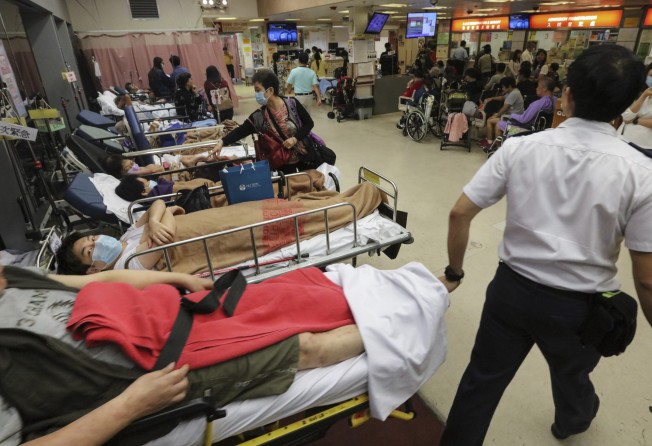Hong Kong’s seasonal flu vaccine programmes need better marketing

During the 2016/17 flu season, more than 700,000 individuals in Hong Kong have received free or subsidised vaccinations for seasonal influenza.
The number of vaccines administered under the government vaccination programme and vaccination subsidy scheme have increased by 4.7 per cent and 46.4 per cent compared to 2015/16. Nevertheless, the number of seasonal influenza virus infections by October 21 had reached 26,605, already exceeding the total number of 21,218 cases in 2016.
To better protect the city against seasonal flu, the government should promote the vaccination programmes more aggressively, and further reduce the vaccination cost through the centralised ordering of vaccines.
In response to my inquiry, the Department of Health said 1.5 million Hong Kong residents were eligible for free vaccination under the vaccination programme and 1.9 million for subsidised vaccination under the subsidy scheme. These numbers include about a million senior citizens who are covered by both plans. Taking out a million to avoid double counting, it is estimated that 2.4 million people are eligible for free or subsidised flu shots.
Considering the low participation rate of the GVP and VSS combined (about 29 per cent), the department should devote more resources to marketing its vaccination programmes.
Mobile vaccination vehicles should be used to make the vaccines more accessible around the city. Vaccination teams should be sent to kindergartens, primary and secondary schools to inoculate children.
In 2016/17, the government purchased 430,000 doses of vaccines, and only 10,000 doses were discarded at the end.
Given the government’s impressive accuracy in predicting the number of vaccines required, the department should also help private doctors under the VSS to purchase the vaccines.
According to a flu vaccine manufacturer in the US, it is always challenging to estimate the demand for vaccines, forcing consumers to share the cost of discarded doses. Therefore, the cost of the flu shots could be further reduced if the government centralised the annual purchase of flu vaccines in Hong Kong.
In 2000, a universal influenza immunisation programme was introduced in Ontario, Canada, to provide free shots to everyone older than six months. Research suggested that this programme was economically attractive, as it halved influenza-related health care costs and brought more years of health to the citizens.
To battle influenza in the city, the government should consider experimenting with a similar universal vaccination programme.
Simon Wang, Kowloon Tong